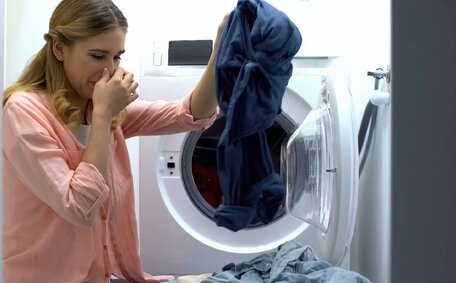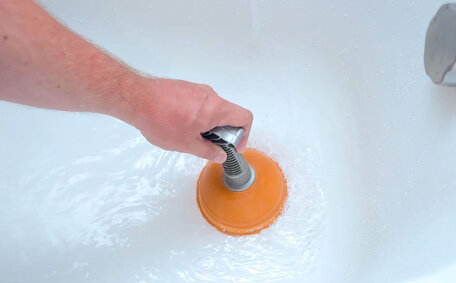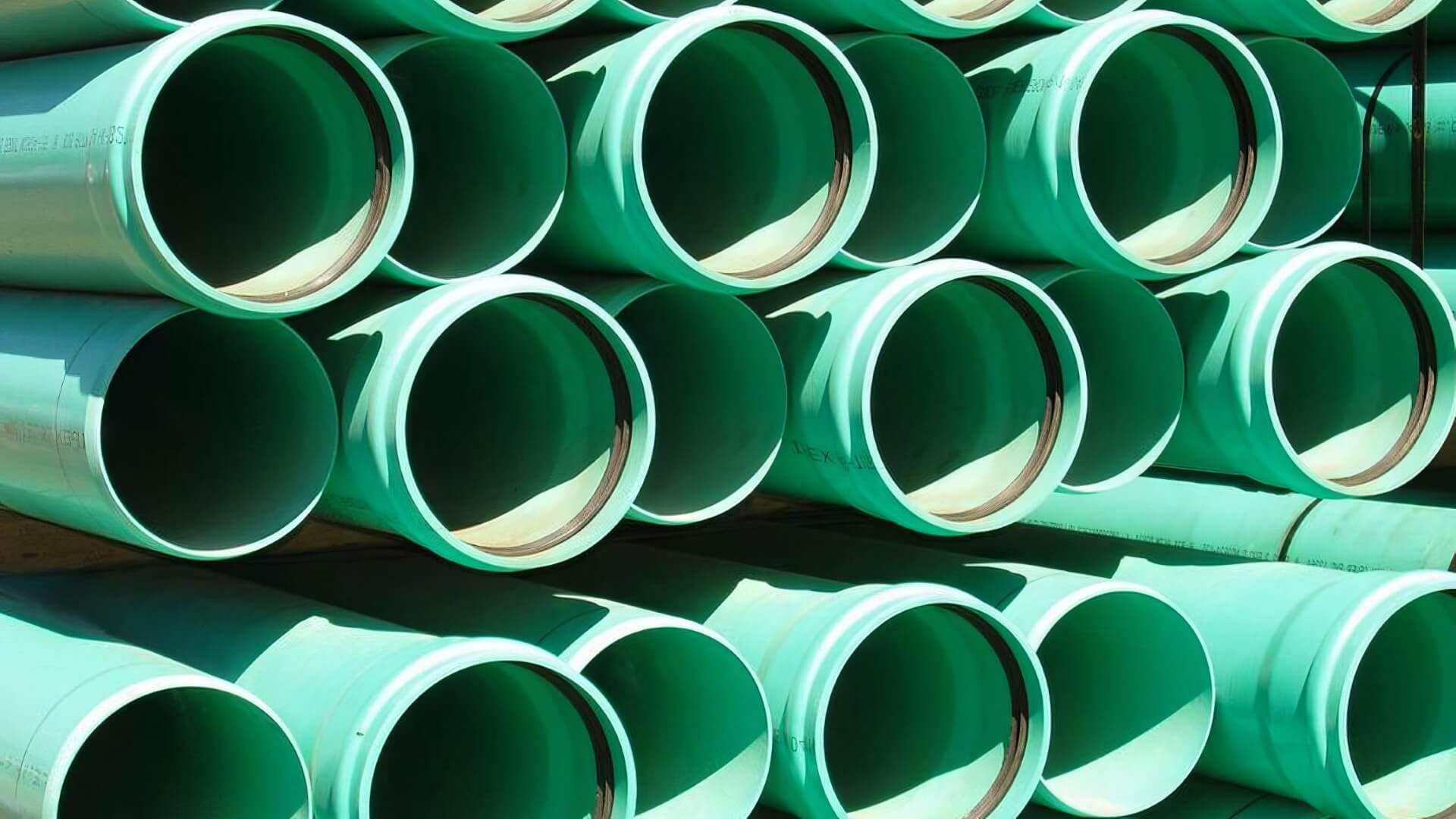What causes hot water systems to explode?
There are a few key factors that can lead to hot water heater explosions:
Excessive Pressure Buildup
As the water inside the tank heats up, it expands, putting pressure on the tank walls. The pressure relief valve is designed to open and release excess pressure if it builds up too high. However, if the valve fails or is blocked, unrelieved pressure can cause the tank to rupture violently.
Gas Leaks
Gas water heaters contain flammable gas that is ignited by a pilot light to heat the water. If gas leaks from a faulty gas line or seal, it can accumulate around the water heater and ignite, triggering an explosion.
Corrosion
Over time, water tank corrosion can weaken the metal walls of the tank. Excessive corrosion paired with high pressure or temperature can lead to tank failure.
To prevent hot water heater explosions, regular maintenance checks and professional installation are key. Warning signs like unusual noises or the smell of gas should be addressed immediately.
Warning signs your hot water system may explode
Here are some warning signs that your hot water heater may be at risk of exploding:
Leaking Pressure Relief Valve
The pressure relief valve is designed to open and release excess pressure from the tank. If you notice water leaking from the valve, it likely means dangerous pressure is building up.
Unusual Noises
Listen for rumbling, knocking, or popping noises coming from your water heater. This could indicate excess pressure or internal damage.
Gas Odour
If you smell gas around your gas water heater, this signals a dangerous leak that needs immediate attention.
Corroded Tank
Inspect your tank for rust spots or leaks, which can indicate corrosion weakening the metal. Knocks when tapping the tank can also reveal corrosion.
Don’t ignore these warning signs. Call a professional immediately to inspect your water heater and make necessary repairs or replacements to avoid a catastrophic failure.
Leaking valves
A leaking valve on your hot water system is a major warning sign that an explosion could be imminent. Specifically, leaks from the pressure relief valve indicate dangerous pressure buildup inside the tank.
The pressure relief valve is a safety device designed to open and release excess pressure from the water heating system. As the temperature inside the tank gets too high, pressure builds up. The pressure relief valve is meant to open and let out small amounts of water to relieve this pressure. This prevents pressure from building to unsafe levels that could rupture the tank.
If you notice the pressure relief valve is leaking or dripping, it likely means the pressure inside the tank is getting dangerously high.
The valve is doing its job and releasing excess pressure. But if pressure keeps climbing, the valve may fail to keep up. This puts the tank at risk of exploding from unrelieved pressure.
A leaking pressure relief valve is often accompanied by rumbling or popping noises coming from the hot water system. This indicates extreme pressure. You may also see leaks elsewhere on the tank as pressure strains its seams.
If you observe leaking from the pressure relief valve, contact a licenced plumber immediately. Do not try to stop the leak yourself by closing the valve.
The plumber can inspect the valve to ensure it is not malfunctioning, and check the system pressure. They may also flush the tank and replace the pressure relief valve if needed to get the system back to safe working order.
Never ignore a leaking pressure relief valve, as it likely means your hot water system needs urgent attention to prevent an unsafe pressure explosion. Take it as a warning to have your system inspected right away.
Strange noises
Unusual noises coming from your water heater can signal potentially dangerous issues that require immediate attention.
Here are some strange noises to listen out for:
- Rumbling or banging - These loud reverberations are often caused by excessive pressure buildup inside the tank. The noise happens as the tank walls and fittings rattle under extreme stress.
- Hissing - A hissing sound may indicate a pressure leak, likely at a faulty pressure relief valve or pipe fitting. This allows heated water or steam to escape the tank.
- Popping or cracking - Similar to rumbling, these noises stem from metallic creaking and stress as pressure strains your water heater beyond safe levels.
If you hear any unusual noises coming from your water heater, turn off the unit and call a professional plumber right away. The sounds likely mean your system needs urgent maintenance to avoid a hazardous tank failure or explosion.
Corroded tank
A corroded hot water tank is a serious warning sign that failure and potential explosion are imminent. As water heaters age, corrosion caused by minerals in water gradually eats away at the metal tank walls. This process weakens and thins the steel, making it more prone to ruptures and leaks under pressure.
Check your water heater tank for rust spots, small perforations, or water staining as evidence of corrosion. Also tap along the walls of the tank—thinner metal caused by corrosion will produce a tinny, knocking sound when tapped versus solid thick steel.
If your inspection reveals corrosion, it means the structural integrity of the tank is compromised and an explosion caused by excessive pressure, temperature, or damage from a separate issue like a gas leak is more likely.
Have a professional inspect and likely replace your ageing, corroded hot water heater to prevent a hazardous failure in your home.
Rotten egg smell
If you detect a strong rotten egg odour around your gas hot water heater, this is a telltale sign of a dangerous gas leak. The gas used in natural gas water heaters is intentionally odorized with a sulphur compound to produce this distinct rotten egg smell so that leaks can be easily detected.
The gas leak likely originates from a corroded gas supply line, damaged gas burner, or faulty gas control valve on the water heater allowing gas to escape. This creates a volatile situation, as any spark could ignite the leaking gas and trigger a heater explosion.
If you smell rotten eggs coming from your water heater, evacuate your home immediately and contact emergency services. Do not turn any electronics or lights on or off, as these could generate sparks. The fire department can shut off the gas supply and detect the origin of the leak to stop the heater explosion risk.
How to prevent hot water system explosions
There are several precautions homeowners can take to help prevent dangerous hot water heater explosions:
Regular maintenance
Have your hot water system inspected annually to check for leaks, corrosion, and other issues. Draining the tank to flush sediment can also help prevent corrosion and overheating.
Professional installation
Always hire a licenced plumber to install new water heaters to ensure proper setup and functioning of valves and other safety features.
Monitor pressure
Install a pressure gauge to keep an eye on system pressure. Ensure the pressure relief valve is rated to the system’s size and is functioning properly.
Lower the temperature
Set your water heater’s thermostat below 120°F to minimise pressure buildup from excessive heat.
Address problems immediately
If you notice any signs of problems like leaks or strange noises, shut off the heater and call a plumber promptly. Never ignore warning signs of potential failure.
Inspect the valves
Check pressure and relief valves regularly for leaks or corrosion. Have worn valves replaced to maintain safety.
Staying on top of water heater maintenance and repairs can help prevent catastrophic tank failures or explosions.
Performing regular maintenance on your hot water system is crucial for avoiding potentially dangerous explosions. Routine upkeep helps detect issues before they escalate into catastrophic failures.
A key maintenance task is inspecting the TPR (temperature pressure relief) valve on your water heater. The TPR valve is designed to release excess heat and pressure from inside the tank. But debris can cause it to stick shut or corrode over time. Annual inspections ensure the TPR valve is functioning properly.
Other important maintenance includes:
- Flushing the tank to prevent sediment buildup
- Checking pipes and seals for leaks
- Inspecting the burner and gas lines in gas heaters
- Testing pressure gauges and thermostats
- Replacing worn parts like valves and anodes
While not overly complex, these tasks require technical skills and safety knowledge. Hire a professional plumber annually to perform water heater maintenance. Routine upkeep provides peace of mind by keeping your system running safely and avoiding catastrophic tank failures.
Proper installation
Having a professional plumber properly install a new hot water heater can help prevent catastrophic failures or explosions down the line. Licenced plumbers have the expertise to size, situate, and connect the system correctly based on local codes and your home’s requirements.
Key elements plumbers will handle include:
- Selecting the right equipment based on capacity needs and fuel type
- Safely mounting the tank
- Connecting gas and water lines securely
- Installing essential safety valves and controls
- Testing for leaks
- Setting thermostats and pressure levels correctly
Attempting a DIY water heater installation risks mistakes that could cause your new system to explode. The small upfront investment of hiring a professional plumber provides peace of mind your heater is setup safely and built to last.
Monitor water pressure
Monitoring and maintaining proper water pressure is crucial for the safe operation and longevity of a hot water system. Excessive pressure puts strain on components like pipes and seals, and risks activation of the pressure relief valve.
Pressure should be kept between 50 to 80 psi. Use a pressure gauge to monitor levels. If pressure climbs too high, around the relief valve’s limit (often 150 psi), take steps to lower pressure:
- Partially close the supply valve
- Flush the tank to remove trapped air pockets
- Check for clogged pipes restricting flow
- Have a plumber inspect the pressure relief valve
Keeping pressure in the optimal range reduces strain on the system. If pressure cannot be lowered, the relief valve will open as a safety precaution. Continuously high pressure indicates an underlying issue needs to be addressed.
Inspect valves regularly
Regularly inspecting the valves on your hot water system is a key preventative maintenance task. Valves such as pressure relief valves, temperature relief valves, isolation valves, and non-return valves play critical safety roles but can degrade over time.
During inspections, check valves for:
- Leaks, drips, or weeping which may indicate failure
- Corrosion and mineral deposits which can impede function
- Proper settings on pressure and temperature relief valves
- Smooth opening and closure
Also test relief valves by manually operating their levers to ensure they still lift open when needed. Consult your owner’s manual for proper testing procedures.
Replace any questionable valves to maintain the safety of your hot water system. Valves are relatively inexpensive and easy for a plumber to swap. Proactive valve inspections help avoid catastrophic tank failures.
When to call a professional
There are several scenarios when you should call a professional plumber to inspect your home’s hot water system:
- You notice leaks or dripping from the pressure relief valve
- You hear strange noises like rumbling or knocking coming from the system
- The water coming out of taps smells like rotten eggs, indicating a potential gas leak
- You see visible corrosion or rust on the external tank
- The hot water supply is inadequate or runs out quickly
- The water temperature fluctuates or is unsafe
Seemingly minor issues like a leaky valve can quickly escalate into major problems that can cause catastrophic tank failures or explosions. Calling a qualified plumber promptly when any warning signs appear allows them to diagnose and address underlying issues in your home’s hot water system before they become dangerous emergencies.
Conclusion
In summary, hot water system explosions are rare but can occur if pressure builds up dangerously high or gas leaks cause ignition.
Homeowners should watch for warning signs like leaks, strange noises, gas smells, and corrosion. These issues indicate professional maintenance is needed promptly to avoid potential tank rupture or explosion. With proper installation, regular upkeep, valve inspections, and temperature/pressure monitoring, catastrophic hot water heater failures can be prevented.
If you notice any concerning signs from your hot water system, schedule a maintenance check right away with a licenced plumber.Eastwood Plumbing provides reliable hot water heater servicing and repairs throughout the Eastwood area.
Don’t hesitate to call us if you have any safety concerns about your hot water system.






